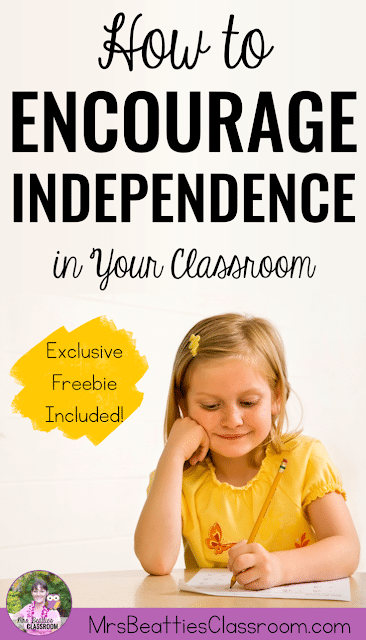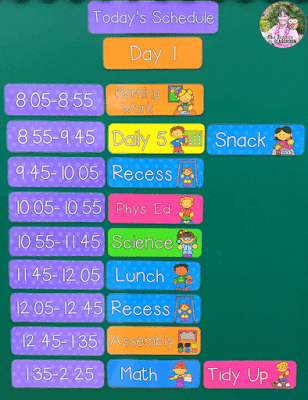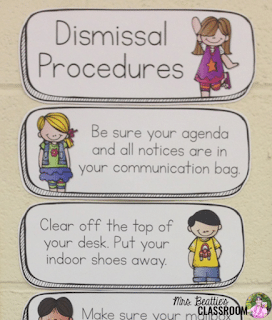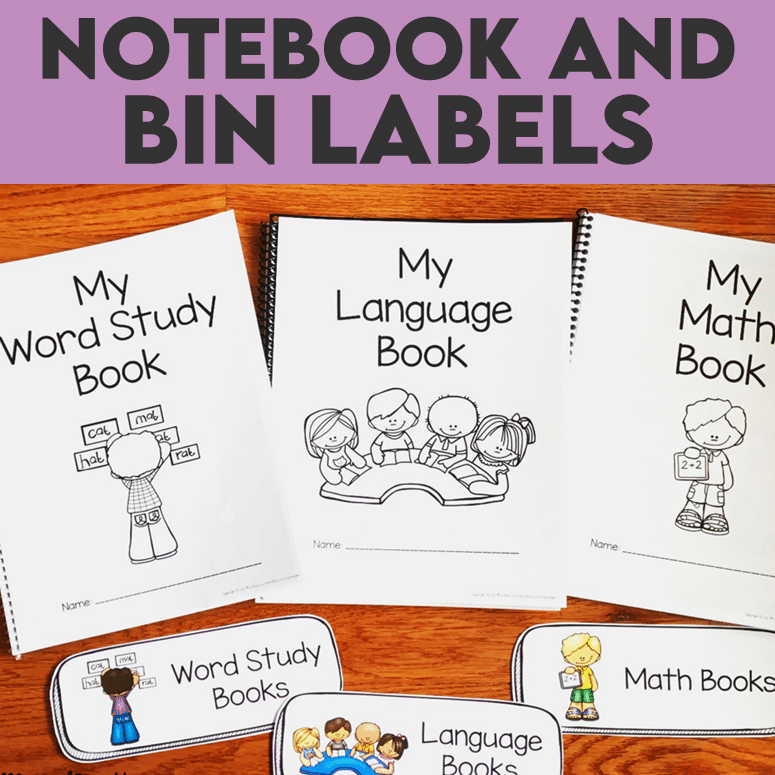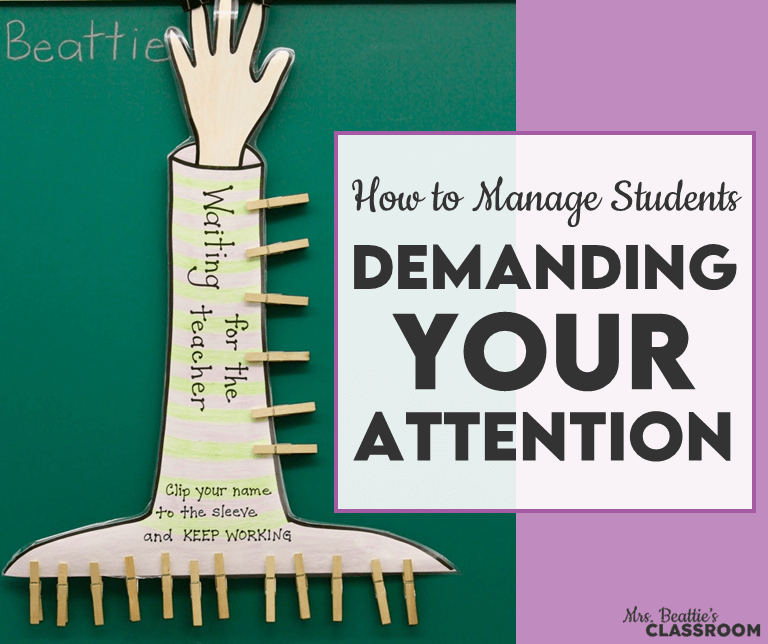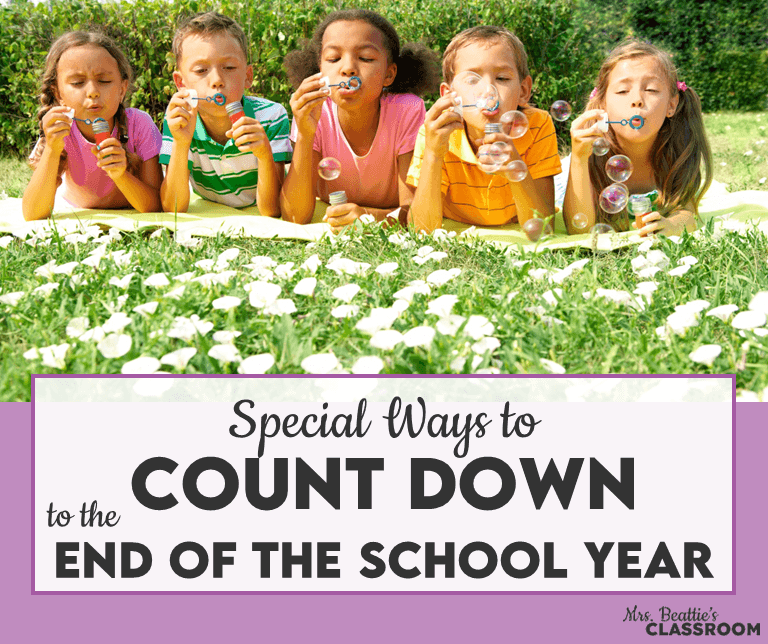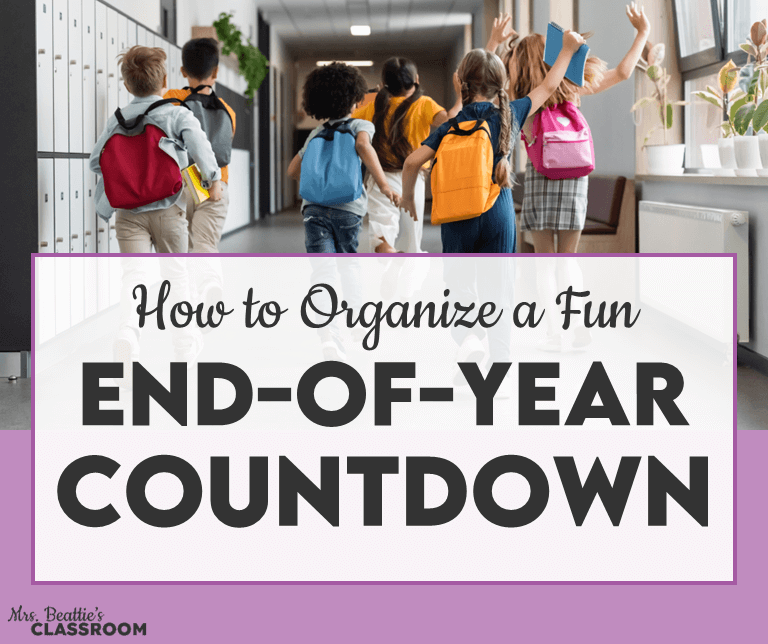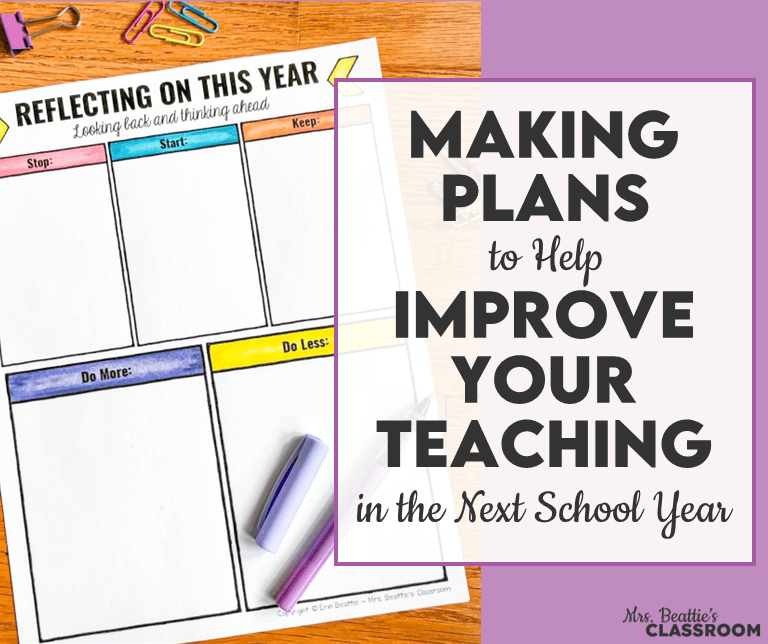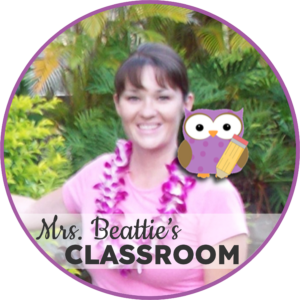How you set up and manage your classroom can greatly affect how your students behave. I’ve seen many classrooms where the teacher acts as a “rescue ranger,” doing everything for their students, even the things children are perfectly capable of.
I’ve got some ideas for fostering student independence by carefully setting up your learning space and managing your classroom routines.
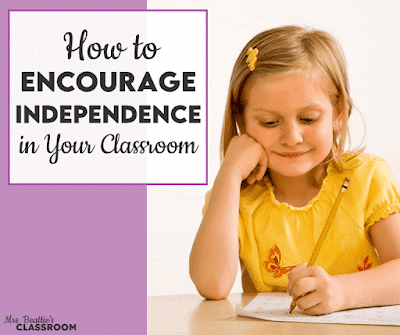
Even your youngest students can manage many parts of the school day without your direct support when you set them up for success. Will it happen naturally? Probably not. You must teach your students how to manage and what you expect from them.
Use Visual Labels
In my classroom, all student resources are kept in central locations. For me, it is the best way to avoid the hassles and headaches that messy desks create.
I have a storage shelf with cubbies that fit buckets just the right size to hold my students’ workbooks. I’ve created workbook covers and matching labels for the bins so that my students can independently locate AND return their books.

These EDITABLE covers and labels are available for free to blog subscribers! Grab them at the bottom of this post!
Assign Leadership Roles
Giving students special jobs is another great way to encourage independence in your classroom. I’ve done this in many ways throughout my career:
- a responsibilities board where I rotate student names each week
- a “Student of the Week” who has several jobs
- holding a job fair where students apply for the job(s) they are most interested in and are selected based on their applications
I love this classroom job display by my friend Christina at Hanging Around in Primary because I love bright rainbow colors!
Give Students Daily Responsibilities
In addition to being independently responsible for their notebooks, my students have shared supplies in caddies on their tables that they are expected to manage without my support.
My students tend to arrive at school with either a wide variety of supplies from home or no supplies at all. In an attempt to create some equality, I often ask the students to consider leaving many of these items at home, and I provide things like crayons, colored pencils, scissors, rulers, and glue sticks for their shared use.
With shared supplies comes a greater responsibility for caring for them! At the beginning of the school year, we spend a lot of time talking about how the baskets should look at the end of the day.
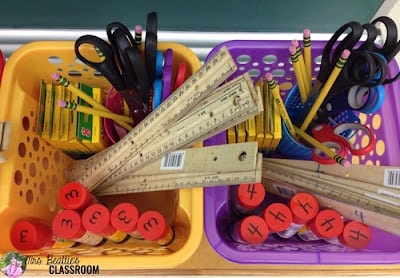
After a couple of weeks of reminders, my students are on their own at the end of the day. I keep them interested and encouraged with our Tidy Table Challenge.
When the table baskets are tidy and organized at the end of the day, one student chooses a Scrabble tile and matches it to a corresponding letter on our Tidy Table Challenge board. When the item is fully covered, the prize is won!
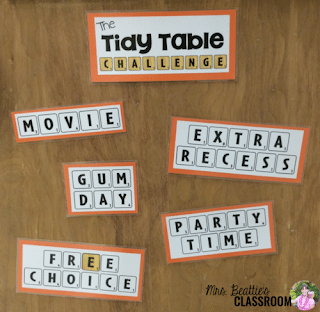
It is an idea that I originally found on the blog An Educator’s Life by Mr. Hughes.
Use Predictable Routines
Routine is HUGE in a primary classroom! When your students know what is coming next, they can transition easily without your direct support!
In my classroom, I try to keep my timetable consistent when I’m first setting it up for the year, with subjects happening around the same time from one day to the next.
I also post a daily agenda that my students refer to from the moment they walk into the classroom. They know at a glance what to transition to at the end of each subject and can do this independently within a week or so of the beginning of the year.
I also keep my entry and dismissal routines very consistent and predictable. The entry routine happens easily, even when a guest teacher is in the classroom. Dismissal can be a different story, though, so I’ve found that it helps to have the expectations for this routine posted explicitly right next to my classroom door. Then, no matter who is in charge of the students at the time, everything is completed before the students walk out the door.
This editable resource is available in my TPT store! Click the image to take a closer look. Here’s a sneak peek:
Set High Expectations
My favorite way to encourage independence in my students is by setting high expectations for them.
No, a little bit higher.
Higher… There! You’ve got it.
My students might be little and have some trouble the first couple of times they do something, but they can do ANYTHING if given the chance and the proper encouragement. I don’t “baby” my students. I don’t “rescue” them by doing tasks for them.
I set high expectations, and then I make sure to follow through with those expectations consistently!
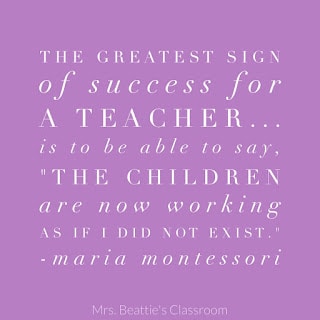
Grab Your Freebies!
If you would like to use my notebook covers and bin labels in your classroom, you can grab the editable file by becoming a blog subscriber! You’ll gain access to this resource and a library of other fun items for your classroom!
You might also be interested in reading about how I manage students who truly do need my attention in this blog post:
Pin this post for easy access next school year!
